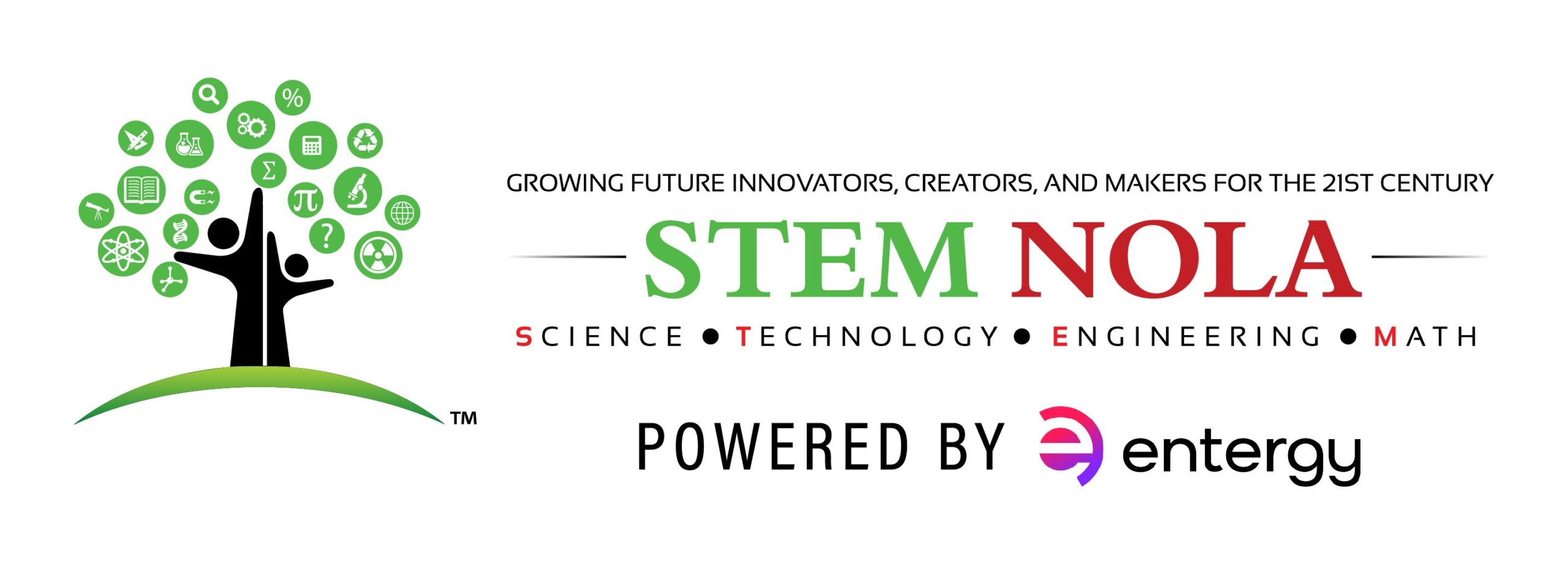Q&A: Understanding STEM NOLA | STEM Global Action
Unlocking the Future Through STEM Education
In an ever-evolving world, the importance of Science, Technology, Engineering, and Math (STEM) education cannot be overstated. STEM NOLA and STEM Global Action are at the forefront of this movement, striving to inspire and empower the next generation of innovators and problem-solvers. Through hands-on experiences and community-based programming, we aim to make STEM accessible to all children, particularly those in under-resourced communities. Our work also plays a crucial role in workforce and economic development, helping to create a skilled workforce that drives innovation and growth. Here are some frequently asked questions to help you better understand our mission and initiatives.
What is the mission of STEM NOLA and STEM Global Action?
Our mission is to expose, engage, and inspire future innovators, creators, makers, and entrepreneurs in grades K-12 through STEM-based activities and opportunities in the fields of Science, Technology, Engineering, and Math (STEM).
Who founded STEM NOLA, and what was the vision behind its establishment?
STEM NOLA was founded by Dr. Calvin Mackie, a former Tulane University mechanical engineering professor, and his wife, Tracy Mackie, a registered pharmacist. Their vision was to integrate STEM education into children’s lives from the age of four or five, making it a natural part of their development.
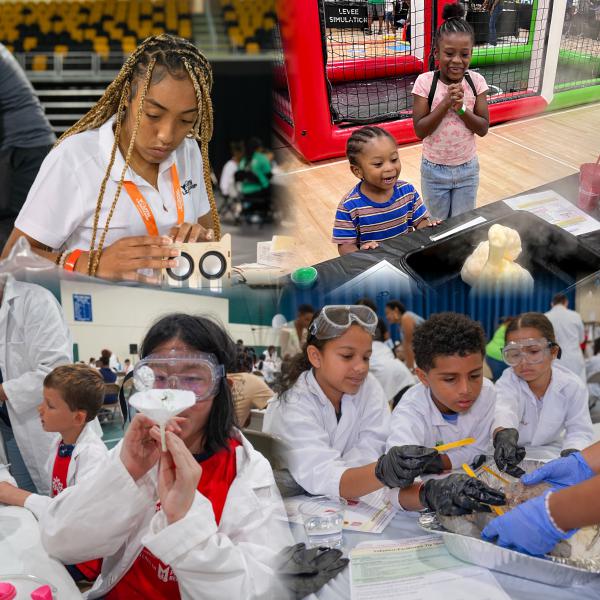
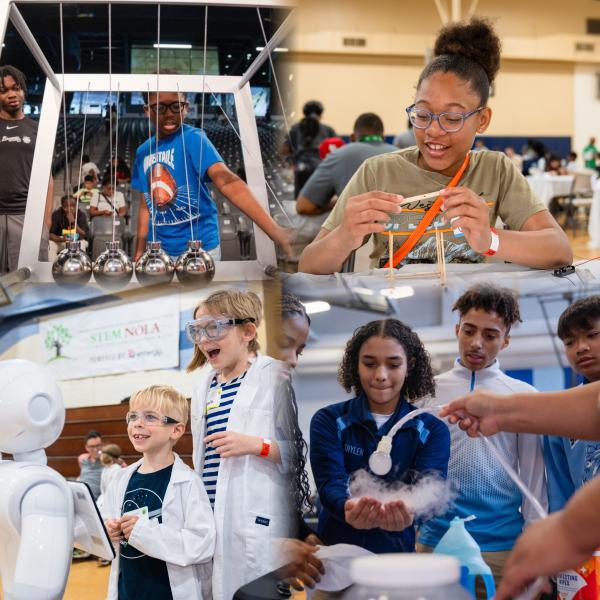
How does STEM Global Action extend the impact of STEM NOLA?
Building on our success in New Orleans, STEM Global Action takes our mission nationwide, focusing on enhancing STEM education in historically under-resourced communities to ensure all children have access to these crucial learning opportunities.
What kind of approach does STEM NOLA take in its programming?
We employ a community-based approach, creating scalable and sustainable STEM engagement programs that can be adapted to different communities and maintained over time.
What makes your learning experiences unique?
Our programs provide state-of-the-art, hands-on STEM experiences. This interactive approach allows students to develop skills, gain confidence, and explore potential STEM careers in ways that traditional education and classrooms may not facilitate.
What is the economic and workforce development significance of STEM education according to your organization?
STEM education is vital for economic growth. By preparing the next generation of STEM professionals, we contribute to attracting businesses, boosting productivity, increasing GDP growth, and enhancing federal tax revenue. Our programs help lay a strong foundation for a skilled workforce, driving innovation and economic prosperity in our communities and beyond.
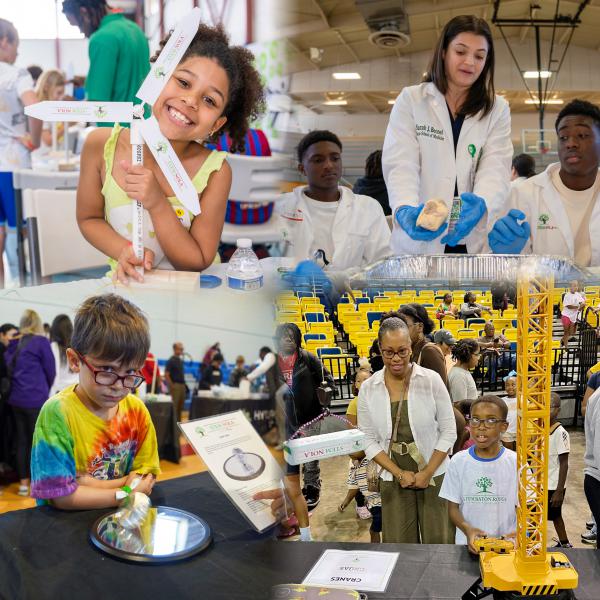
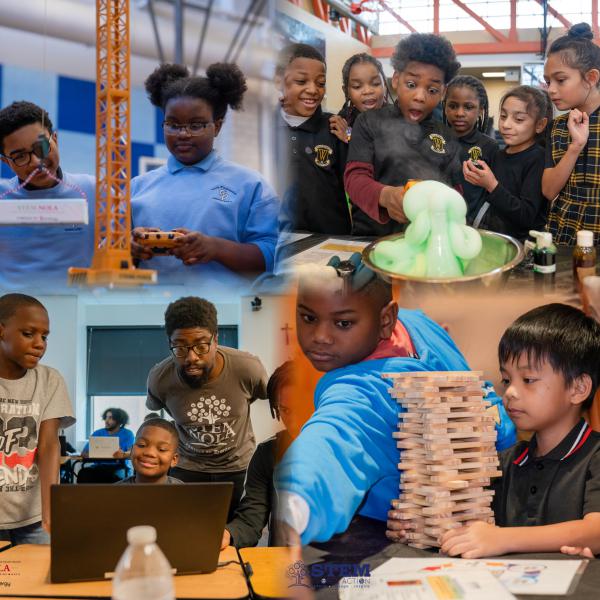
How does STEM NOLA address diversity within STEM fields?
We are committed to closing the diversity gaps in STEM by creating pathways for underrepresented groups, enhancing innovation, and ensuring all voices are included in the STEM workforce.
In what ways are your programs culturally relevant?
Our programs are designed to resonate with participants from diverse backgrounds, ensuring that STEM education is inspiring and accessible to all students, regardless of their background.
What essential skills do your activities focus on developing?
We prioritize key transferable skills such as Communication, Collaboration, Creativity, Critical Thinking, and Community, which are crucial for success in the digital age and are integrated into all our teaching methods.
What is Dr. Mackie’s vision for the future of STEM engagement?
Dr. Mackie envisions a future where a million kids engage in STEM activities every Saturday, reflecting our commitment to making STEM education an integral part of children’s lives.

